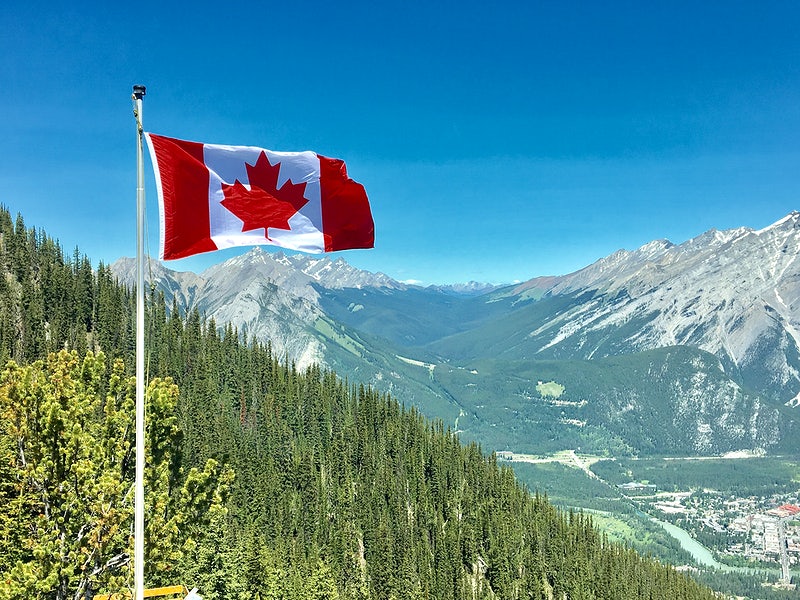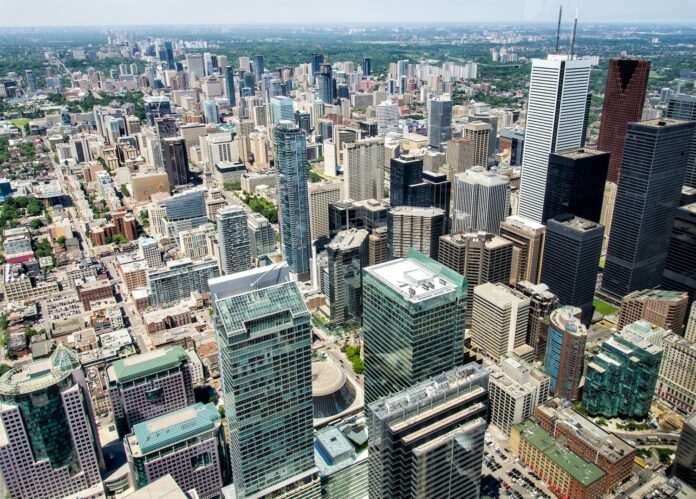If you want to move to Canada or have spent your vacations in Canada, you must think about Canada’s average cost of living. In this article, you will learn about the different expenses of living in Canada, which will help you make a budget and other important decisions.
Canadian culture
Most ex-pats don’t have a problem with cultural differences because Canada is a melting pot of cultures, mainly if you hail from the West. The British colonial regions as well as Quebec, a francophile state, however, have different histories.
And over 60% of people in the Canadian province of Quebec speak French as their primary language, so there might be circumstances in which being fluent in French is advantageous.
It could take some time to get used to Canada’s size and the isolation of some places. Cities are far apart, and traveling from the Atlantic towards the Pacific coast is nearly as far as traveling from of the UK to Saudi Arabia. The majority of the north cannot be reached by road.
What is the average cost of housing in Canada?
The average cost of housing can be among the most expensive expenses if you intend to reside in Canada. Prices vary widely based on the type of house, the area you live in, and the amount of space you require.
1. Rent or buy which is more beneficial?
A few newcomers prefer renting while becoming familiar with their new residence and the Canadian property market. To determine if buying or renting is the best option for you, you must consider your needs carefully when you first arrive. The purchase of a house could be a viable option if you intend to remain in the exact location for a long time and have enough money to pay for the down payment as well as your mortgage repayments. Along with the cost of buying, it is also necessary to add the 2% to 3 percentage for other expenses, including an inspection of the building and notary costs.
2. Why are some homes more expensive than others?
A myriad of factors influences the cost of housing in Canada. Here are some examples.
- Demand: The greater the demand, the more the cost. Central neighborhoods are typically considered more desirable locations to live in, making demand and prices higher. It is more expensive to live in cities than the outlying regions.
- Size of unit: The larger the number of rooms an apartment has, the more costly it will cost. It is the same for houses that have a yard.
- Services and amenities It’s a high chance that an apartment with a garage, parking space, or pool is more costly to lease or purchase.
Prices for apartments vary widely between cities and the next. In general, Vancouver is the city with the highest cost of housing than Toronto and Montreal. To find out more about the cost of housing, browse online advertisements or call an agent that specializes in rental properties. To reduce costs, keep in mind that prices are likely to decrease further from urban centers.
3. What are other costs in connection with the cost of housing?
The cost of renting or mortgage isn’t all the home-related expense to consider. If you decide to become a homeowner, you’ll face additional payments to pay for, such as:
- Electricity
- Insurance
- School and municipal taxes
- Condo fees, if you buy a condo
Some of these costs (excluding insurance) could be included in the monthly rent if you are renting the property. Whether you’re a homeowner or a tenant homeowner, having a solid insurance policy could provide you with several hassles when something goes wrong.

What percentage of your budget can you put aside for food in Canada?
A typical family consisting of 2 adults with two kids will spend on average $13,907 per year on food. That’s around $267 per week, according to an analysis published by a team comprised of Canadian academics. It doesn’t take into account meals at restaurants. Naturally, the cost of food depends on your choices as a buyer. Setting up a budget for food is a great way to cut costs.
How much will it average cost to travel around Canada?
1. Traveling by car cost
It’s possible to be without a car within the city; however, you’ll likely require an automobile even if you’re not in an urban area that is a major one. If you’re considering buying an automobile, it will cost you over $10,000 at the minimum but possibly a good amount more, depending on the type of car and the manufacturer. Expect prices of up to $25,000 for the most basic sport utilitarian vehicles (SUVs) as well as $60,000 for the most basic pickup trucks and higher for luxurious automobiles.
Another option is leasing. In this way, you can drive a brand new vehicle with lower monthly payments. After the lease contract expires, typically after 3 to 5 years, you must return the car to the dealer or purchase it. It is also possible to save money by purchasing an older car. Because used cars will always cost less than a brand new one, you must ensure that the body, mechanics, and electronic components are in good working order. An inspection will assist you in making the right decision.
Whatever you decide to do, be sure to consider all the other costs associated with vehicle ownership: insurance, gas maintenance, driver’s license registration of your vehicle permits for parking as well as traffic tickets, and many more.
Read More: Tow Truck Cost: A Detailed Overview About How Much Does A Tow Truck Cost?
2. What is the cost of public transportation?
The best public transit systems in Canada are located in major urban centers. Some cities have interconnected subway, bus, commuter train networks, and car-sharing and bike services. There is a possibility of bus services in smaller towns or none. Public transportation at all. The average cost for transit is around $3-$4. However, various options to reduce your expenses include annual passes (starting at around $90 per month), multi-trip cards, weekend passes, and more.
Cell phone plans cost in Canada
The rates for cell phones for Canada are among the most expensive anywhere globally. Service providers provide a variety of plans to suit your requirements. For a rough example, a smartphone plan that includes two GB of data will cost you around forty dollars per month. Programs with more features may be higher, as high as one hundred twenty dollars/month. This is not even including the price of the device.
What is the cost of healthcare, education, and other services of the general expenses in Canada?
Many decades ago, Canadians established a system of social services to ensure that everyone has access to education, health, and other services provided by the public. The taxes on income and sales paid by Canadians contribute are reinvested by the government into schools, hospitals, roads, and other services.
1. How much taxes are in Canada?
The amount you pay in sales tax for your purchases is contingent upon the province you live in. The federal 5% tax on goods and services (GST) applies to all provinces. In certain provinces, like Ontario, the business must pay one tax, known as the tax on sales that are harmonized (HST), which is anywhere from 13% to 15% and incorporates GST that is federal. GST. In other provinces such as Quebec in Canada, two taxes appear on your bill: taxes for provincial sale ranging from 6 percent to 9.975 percent and the federal GST. In Alberta, the local province Alberta and Canada’s three territories do not have any provincial tax on sales.
2. How much tax on income do individuals have to pay in Canada?
Each province operates its tax system. The proportion of your earnings to the federal and provincial governments is contingent on where you live. Income tax is calculated by using “tax brackets.” The more earned, the more significant the proportion of income tax. At the federal level, Federal level, tax rates vary between 15% and 33 percent. The provincial levels range between 4% and 21% based on the province.
Interesting facts about Living in Canada
- Canada is the second largest country in the world by land area, covering almost 10 million square kilometers.
- The country is known for its friendly and welcoming people, diverse cultures, and a strong sense of national pride.
- Canada has a strong education system, with a high literacy rate and many world-renowned universities.
- The country is one of the largest producers of oil and natural gas in the world.
- It is home to many unique and diverse landscapes, including the Rocky Mountains, the Canadian Shield, and the Great Lakes.
- Canadian cuisine is a reflection of its diverse cultures, with dishes ranging from poutine to butter tarts.
- Hockey is considered Canada’s national sport and is played and watched by people of all ages across the country.
- The country has a universal healthcare system, providing free medical services to all citizens and permanent residents.
Conclusion
In essence, it’s a good idea to plan for your trip by learning more about Canada’s average cost of living. After you’ve got a clear concept of what to anticipate, it’s time to make a thorough budget to help maintain your finances on a level.
FAQs
- How much money do you require to afford a decent life in Canada?
For Canadians as well as North Americans as a whole, the optimal salary can be ninety-five thousand dollars for what they refer to as “life assessment” as well as sixty thousand dollars to seventy-five thousand dollars to support “emotional health.” (This averages approximately seventy-seven thousand five hundred dollars).
- What is the monthly average living expense in Canada?
Living in Canada is two thousand sixty-one hundred dollars per month.





